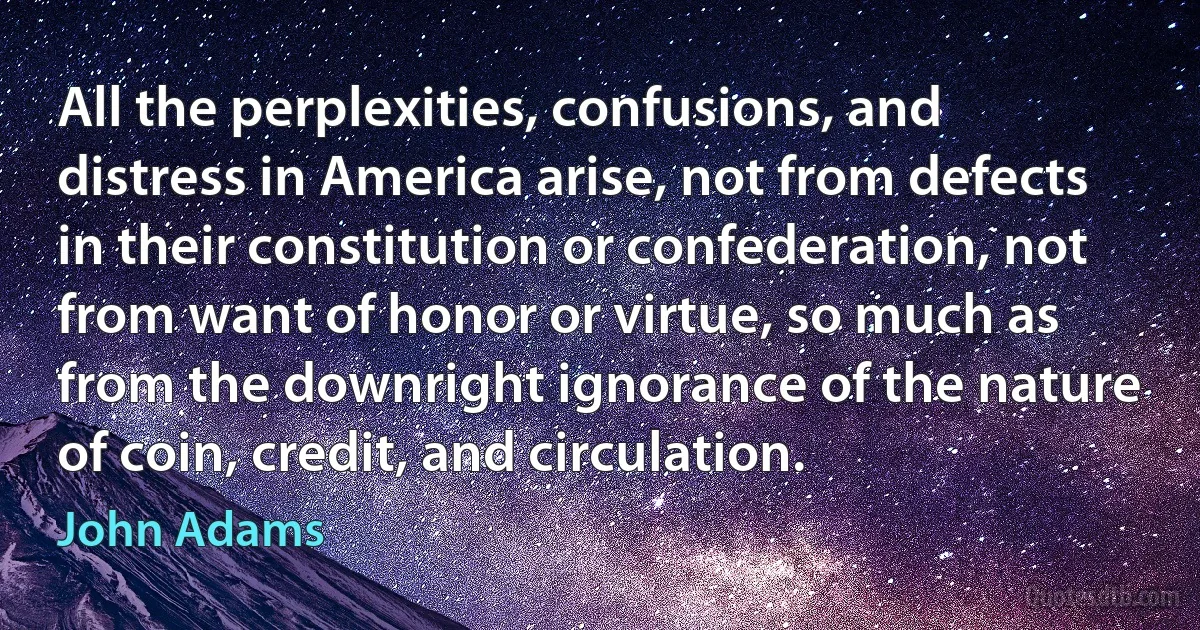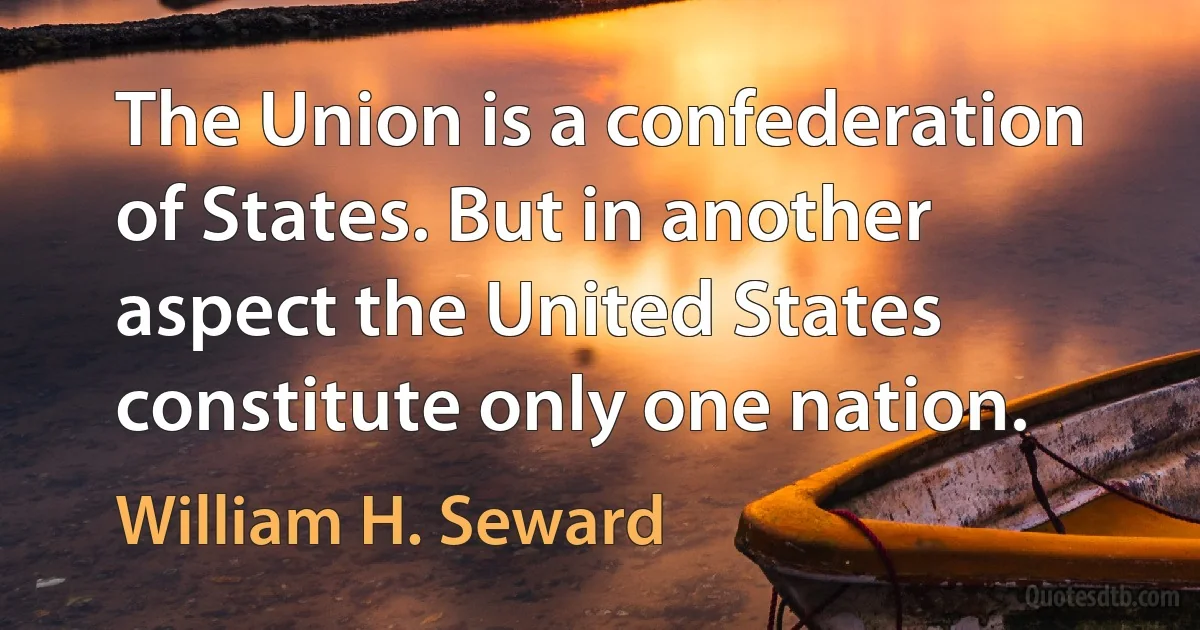Confederation Quotes
Upon completion of the centennial of your birth – and this time only – we have come to address some remarks at your graveside. We report to you, Rosh Betar, that Jerusalem, the city that has become bound together, the eternal capital of Israel and of the Land of Israel, shall not be subjected to any division and is our liberated and indivisible capital and so it shall remain from generation to generation.
The western part of the Land of Israel is entirely under our control and it shall not be partitioned anymore. No part of this land shall be given over to a foreign administration, to foreign sovereignty.
We believe that a day will come when the two parts of the Land of Israel shall establish, peacefully, in agreement and understanding a covenant of alliance, a free confederation, for the purpose of join cooperation.

Menachem Begin
Mrs. Gandhi has only one dream: to take over the whole sub continent, to subjugate us. She'd like a confederation so as to make Pakistan disappear from the face of the earth, and that's why she says we're brothers, and so forth. We're not brothers. We never have been. Our religions go too deep into our souls, into our ways of life. Our cultures are different, our attitudes are different. From the day they're born, to the day they die, a Hindu and a Muslim are subject to laws and customs that have no points of contact. Even their ways of eating and drinking are different. They're two strong and irrecon cilable faiths. It's shown by the fact that neither of the two has ever succeeded in reaching a compromise with the other, a modus vivendi. Only dictatorial monarchies, foreign invasions, from the Mongols to the British, have succeeded in holding us together by a kind of Pax Romana. We've never arrived at a harmonious relationship.

Zulfikar Ali Bhutto
I think in Atlantic Canada, because of what happened in the decades following Confederation, there is a culture of defeat that we have to overcome. ...Atlantic Canada's culture of defeat will be hard to overcome as long as Atlantic Canada is actually physically trailing the rest of the country.

Stephen Harper
It has been said, that the people had already surrendered all their powers to the State sovereignties, and had nothing more to give. But, surely, the question whether they may resume and modify the powers granted to government does not remain to be settled in this country. Much more might the legitimacy of the general government be doubted, had it been created by the States. The powers delegated to the State sovereignties were to be exercised by themselves, not by a distinct and independent sovereignty, created by themselves. To the formation of a league, such as was the confederation, the State sovereignties were certainly competent. But when, "in order to form a more perfect union," it was deemed necessary to change this alliance into an effective government, possessing great and sovereign powers, and acting directly on the people, the necessity of 'referring it to the people, and of deriving its powers directly from them, was felt and acknowledged by all.

John Marshall
The attempt made to establish a separate and independent Confederation has failed; but the consciousness of having done your duty faithfully, and to the end, will, in some measure, repay for the hardships you have undergone. In bidding you farewell, rest assured that you carry with you my best wishes for your future welfare and happiness. Without, in any way, referring to the merits of the Cause in which we have been engaged, your courage and determination, as exhibited on many hard-fought fields, has elicited the respect and admiration of friend and foe. And I now cheerfully and gratefully acknowledge my indebtedness to the officers and men of my command whose zeal, fidelity and unflinching bravery have been the great source of my past success in arms.

Nathan Bedford Forrest
When confederation is realized, and the ideologies of North and South are propagandized in the course of free intercourse between the two sides, the Republic [DPRK] will not be affected in the slightest, because it is a unified state. But the South is an ideologically divided, liberal country, so if we extensively propagate Juche Thought and the superiority of our system we can win over at least half its citizens. As of now South Korea is twice our size in population terms. But once we win over half the South's people in a confederation, we will be two parts to the South's one. We would then win either a general election or a war.

Kim Il-sung
I have made it quite clear – and so did Mr Prior when he was Secretary of State for Northern Ireland – that a unified Ireland was one solution. That is out. A second solution was confederation of two states. That is out. A third solution was joint authority. That is out. That is a derogation from sovereignty.

Margaret Thatcher
In Switzerland, we have a centuries-old tradition of living together in one confederation and one society. That holds us back from excesses. We are a civilized and enlightened community and, by practising multicultural tolerance, we manage to stop extreme developments from going too far.

Klaus Schwab
The driving force in the world economy is fast becoming a global confederation of productive vanguards. The vanguards established in different parts of the world drive one another forward. They trade with one another. They transfer personnel, technology, and organizational practices among themselves. Above all, they emulate one another.

Roberto Mangabeira Unger
Slavery existed before the formation of this Union. It derived from the Constitution that recognition which it would not have enjoyed without the confederation. If the States had not united together, there would have been no obligation on adjoining States to regard any species of property unknown to themselves.

Jefferson Davis
The South claimed the sovereignty of States, but claimed the right to coerce into their confederation such States as they wanted, that is, all the States where slavery existed. They did not seem to think this course inconsistent. The fact is, the Southern slave-owners believed that, in some way, the ownership of slaves conferred a sort of patent of nobility-a right to govern independent of the interest or wishes of those who did not hold such property. They convinced themselves, first, of the divine origin of the institution and, next, that that particular institution was not safe in the hands of any body of legislators but themselves.

Ulysses S. Grant
[I]n a confederation the South must accept the ultra-nationalist Kim Il Sung cult, whereas the North must acknowledge only the South's superior prosperity and technology - and one of the main goals of confederation is to eliminate that gap as rapidly as possible. (It will be as much a matter of pulling the South down as the North up.)

Brian Reynolds Myers



